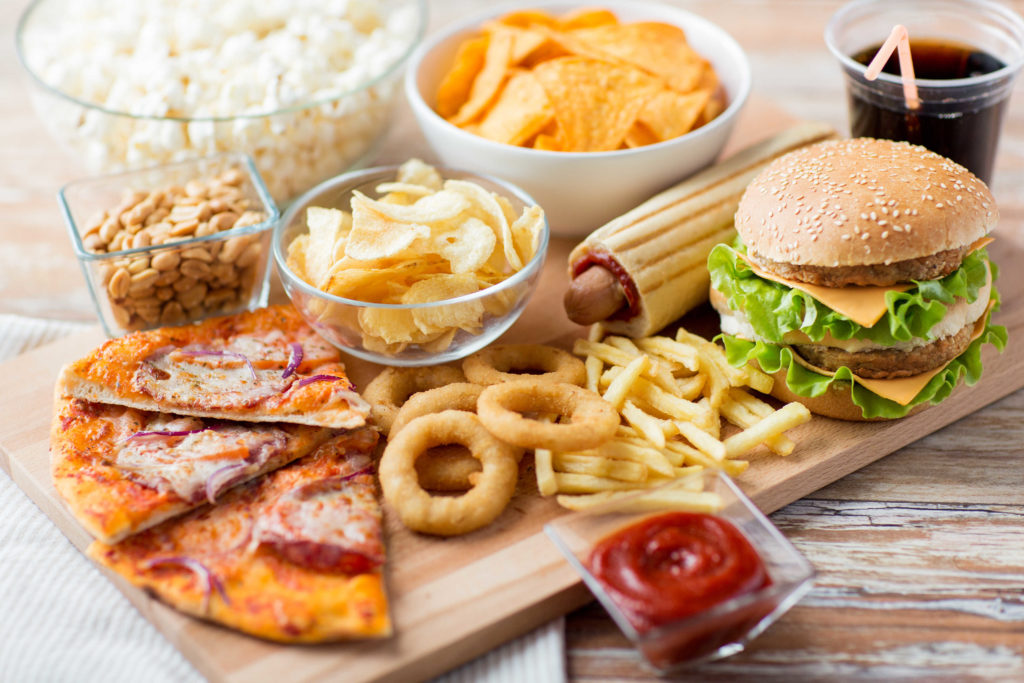Can Your Diet Affect Acne?

Affecting as many as 50 million people in the United States each year, acne is the most common skin condition in the country. It often begins during puberty, and it is especially prevalent between the ages of 12 and 24. Acne can cause oily skin and several types of lesions, including pimples. Symptoms vary from mild to severe, and they can impact a person’s quality of life. While there is currently no cure for acne, the range of effective treatments includes prescription medications and over-the-counter gels and creams. Lifestyle changes can also help to reduce symptoms and prevent breakouts.
Some people believe that the diet plays an important role. In the medical community, there is extensive debate about the impact of the diet. While many experts once thought that the diet had no role in the development of acne, results of some recent studies suggest otherwise.
A new study, published in the medical journal JAMA Dermatology, compared the results of 24-hour dietary surveys of more than 24,000 adults (average age 57) who reported having acne currently, having it in the past but not currently, or never having had it. The researchers found a correlation between the chances of having current acne and consumption of
- high-fat foods (including milk and meat)
- sugary foods and beverages
- a diet high in the combination of high-fat and high-sugar foods. Compared with those who never had acne, respondents with current acne were 54% more likely to consume this type of diet.
Higher intake of high-fat, high-sugar foods was associated with a higher incidence of current acne. For example, compared with those with no history of acne, those with acne at the time of the survey were 76% more likely to report drinking at least five glasses of milk in the previous day, more than twice as likely to report consuming at least five servings of high-sugar drinks in the previous day, and eight times more likely to report consuming “a complete meal of fatty and sugary products” in the previous day.
Fast foods and snack foods were linked with past (rather than current) acne. And chocolate? Neither dark nor milk chocolate were associated with past or current acne.
How does the diet affect the skin?
Acne develops when pores in the skin become clogged with dead skin cells, bacteria, or both. This clogging also occurs when the body produces too much sebum, an oil that keeps the skin from drying out. Clogged pores can lead to inflammation and cause pimples and other types of lesion to form.
With so much uncertainty surrounding the effects of the diet on acne, it can be hard to know which foods to try and which to avoid. Also, certain strategies may work for some people but not for others.
Keeping a food diary can help a person to identify foods that trigger or worsen acne breakouts. Log every meal and snack and record the type and severity of acne symptoms that develop each day. A person should do this for a few weeks or longer and bring the diary to an appointment with a doctor or dermatologist. The doctor can help to find links between the timing of breakouts and entries in the food diary. They can also advise about dietary changes. When changing the diet, it is important to be patient. According to the AAD, it can take up to 12 weeks for a dietary change to have a noticeable effect on the skin.
As our understanding of acne continues to evolve, we may eventually have clearer guidelines about the best diets to prevent or treat it. For now, whether you’re a teenager or an adult, it’s likely that there is no single diet that will guarantee clear skin. So, enjoy your favorite foods in moderation. And if you find that some of them make your skin worse, you’ll have to decide if they’re worth it. Make it a priority to plan your approach and take the necessary steps toward creating and maintaining a healthy lifestyle. You can contact Western Maryland Dermatology at (301) 777-7900 or visit us online at wmderma.com/contact.
https://www.medicalnewstoday.com/articles/322639#general-tips-for-acne
